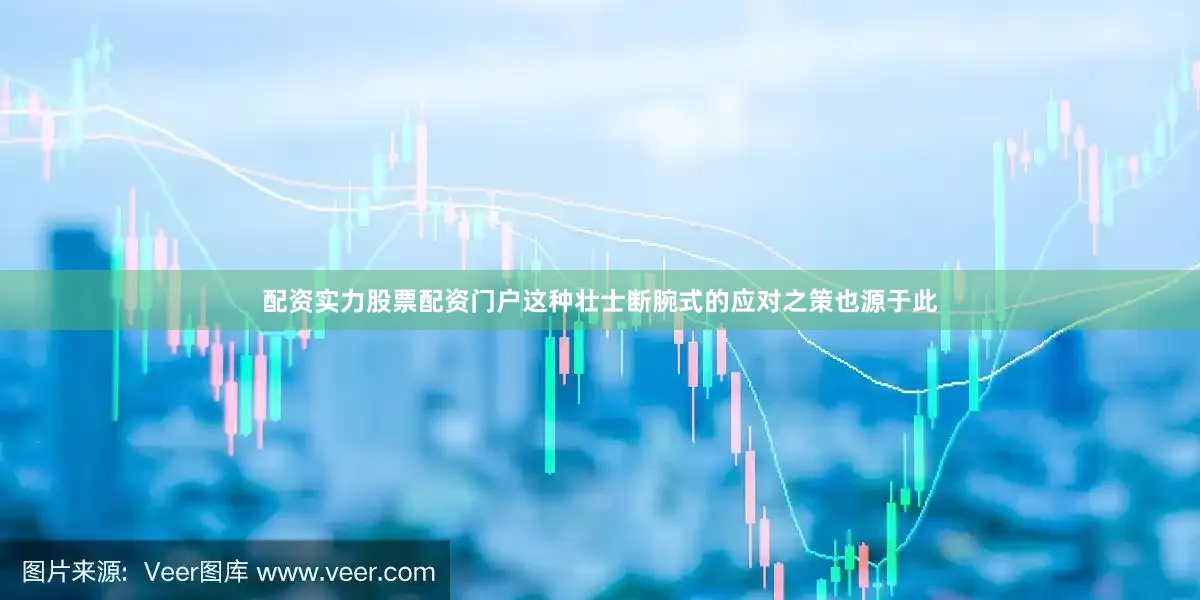
TRANS:陶东 REV:辰时行医
As we know, the alleged “Japanese philosophy in Japanese academic circle, generally is confined to the academic documents, especially of the Kyoto school,that appeared after the early modern time. Different from the Chinese academic circle which takes the traditional thoughts as research object of the “Chinese philosophy, the Japanese academic circle generally only regards the texts after the early modern generated in researching the western philosophy or using dialectics and the mode of argumentation of the western philosophy to carry out the the philosophical exploration , as the research object of the Japanese philosophy, but at the most beginning of the emergence of the disciplinary concept “the Japanese Philosophy”during the end years of Meiji era, it was similar to the situation that appeared in the early modern China, namely ,also was it taking the traditional thoughts as the object of the philosophy, using the philosophy of the western concept to conduct the paradigm conversion of the native traditional academic thought into the early modern academic model . However, with the Japanese academic circle’s introspection of their own culture and ideology, and the intensification of the Japanese academic pursuit of subjectivity, in 1930s, just after the emergence of the research of Japanese History of Ideology, the Japanese philosophical exploration only taking the texts after the early modern as its object,appeared at the proper time, thereby, after 1940s,formed a convention of which attributes the research before the early modern time to the realm of ideology, while the object of the Japanese philosophy was confined to the texts after the early modern , the academic tendency of which takes the research on western science and the relevant philosophical documents generated from its(the west’s) influence, or the monographs as the object of the Japanese philosophy, was then shaped.
展开剩余93%正如我们所知,在日本学界所谓的“日本哲学”,一般仅限定于近代以后、特别是“京都学派”的学术文献。与中国学界把传统思想都作为“中国哲学”的研究对象不同,日本学界一般只把近代以后,研究西方哲学或者运用西方哲学的思辨与论证范式展开哲学探索所诞生的文本,作为“日本哲学”的研究对象。但在明治末年最初出现的“日本哲学”学科概念时,与“中国哲学”的情况是一样的,也是把本国的传统学术思想作为哲学研究对象,并以西学概念“哲学”进行近代学术范式的转换。然而,随着日本学界对于自身文化与思想的反思以及日本学术主体性追求的强化,20世纪30年代,在“日本思想史”的研究出现之后,仅以近代文本为对象的“日本哲学”探索应运而生,从而在40年代之后,学界逐渐形成了把近代以前归入“思想史”研究领域,而“日本哲学”的研究对象则限定于近代以后的文本,形成了仅以近代以后研究西学乃至在其影响下出现的哲学文献或论著作为“日本哲学”探索对象的学术格局。
世界哲学术名下其曲折繁琐之探索历程有时或只需在“开眼看世界”这种通俗的语言里直见其行为与精神的表里。
Such scheme is so far still the cognition of the main stream of Japanese academic circle, generally, when speaking of the Japanese philosophy, it always only points to the academic works formed in texts after the early modern time. About this problem, I have in series of theses carried out relevant expounding. However, in recent years, the Japanese academic circle has been in a new orientation, the alleged exploration of the World Philosophy emerges. Such change obviously has an nature of exploration of breaking scholarly traditional scheme of malformation since the early modern time. Though the scholarly pursuit of Japanese academic circle putting forward the exploration and construction of the World Philosophy, is not only resting on this narrow pursuit level, its academic pursuit possessed by its essence would be far higher, presenting a new look of seeking for breaking the western- centred hegemony of scholarly words since recent years. Through such a new scholarly phenomenon, we can both realize the front visual angle of philosophical exploration of the Japanese scholars in recent years, and touch the scholarly spirit that endeavors to promote renewing and abandoning the old things in Japanese academic circle, which has important referential value to the relevant research of Japanese philosophy, ideology and culture, etc, taking into consideration the present national advocated construction the Chinese autonomic knowledge system,re-establishing the epochal scholarly subject of the traditional cultural confidence.这种格局迄今为止仍然是日本学界的主流认识,大凡言及“日本哲学”,都只是近代以后文本所形成的学术论著。关于这个问题,笔者已经在一系列论文中进行过相关阐述。然而,近年来日本学界有了崭新的动向,出现来了所谓“世界哲学”的探索。这种动向显然具有打破近代以来学术传统畸形格局的探索性质。不过,日本学界提出探索与建构“世界哲学”,其学术目标并非仅停留在这种狭隘的追求层面,究其本质所具有的学术追求则更为高远,呈现出寻求突破近代以来西方中心主义学术话语霸权的崭新气象。通过这种崭新的学术现象,我们既可了解近年来日本学者关于“哲学”探索的前沿视角,又能触及日本学界努力追求推陈出新的学术精神,这对于我们从事日本哲学、思想、文化等相关研究,思考当前我国倡导建构中国自主知识体系,重新确立中国传统文化自信的时代学术主题,具有重要的参考价值。 “TWO DIFFICULTS OF THE PHILOSOPHY” AND THE PRESENTATION OF THE “WORLD PHILOSOPHY”
“哲学的两难”与“世界哲学”的提出According to the epilogue of The World Philosophical History, we can confirm that, the idea of construction“the world philosophy”raised by Japanese academic world, has direct relation with the conference held in Beijing by the WCP ( World Congress of Philosophy) in 2018. The author of the epilogue the professor Noburu Notomi(from Tokyo University )precisely expresses that : “the World Philosophy” is an idea presented by the Japanese academic world to the World Philosophical Conference held in Beijing in August ,2018. this is because, since the first congress of the World Philosophy was held in 1900, there so far had been no such international scholarly conference held in Japan within just 120 years, so, it would be a chance for Japan that the next host of holding the conference would be generated by voting during the period of the Beijing Congress of the World Philosophy, the Japanese academic circle hoped to hold this great meeting of 2024 after it was held in Beijing , therefore, they need to propose an convincing and intriguing idea about hosting this philosophical conference, and thereby to derive more votes. Professor Noburu Notomi admitted in the epilogue frankly, that , “the world philosophy” “is proposed as the due form of Japan about the philosophy” to have this international scholarly conference in Japan some day.根据《世界哲学史》的“后记”可以确认,日本学界提出建构“世界哲学”的理念,与2018年“世界哲学会”(World Congress of Philosophy)在北京召开的大会直接相关。“后记”执笔者纳富信留教授(东京大学)明确表明:“‘世界哲学’是日本学界面向2018年8月在北京举行的世界哲学会大会而提出的(哲学)理念。”这是由于自1900年第一届世界哲学大会召开以来,120年来在日本尚未举办过这个国际学术会议,而在北京召开的世界哲学大会期间,将会投票产生下一届举办国,而当时的日本学界希望在北京之后日本能够成为2022年的举办国,所以需要提出一个具有说服力与吸引力的关于主办该大会的哲学理念,从而获得更多的选票。纳富信留教授在“后记”中坦承,“世界哲学”是为了将来在日本举办这个国际学术会议而“作为日本的(关于)哲学的应有形态的提案”。Although at the conference held in Beijing ,Japan didn’t get their opportunity to hold the next congress, in circle of the Japanese scholarship, the exploration and construction that the “world philosophy”are concerned rather were triggered by this and gradually developed into a new kind of academic movement, became the most important topic discussed between philosophical researchers of Japan, they “commenced with trying to discuss if from the view of the world philosophy to look at the Japanese philosophy, whatever possibility can they find. For several years, scholars took part in this arguments of philosophical issue, besides the leading professor Noburu Notomi, there were professor Deguchi Yasuo from Tokyo University, and professor Kōno Tetsuya from Rikkyo University, the professor Naoe Kiyotaka from Northeastern University, and so on, and the problem of the “world philosophy”, firstly at the various seminars such as society of comparative ideological history, the Chinese social cultural society, Japanese scholarly meeting, and so on so forth, became one of the topics that was broadly discussed, thereby fostered the publishing and compiling works of the World Philosophic History, which was led by Noburu Notomi,and the professor Uehara Mayuko at kyokyo University, professor In Nakajima Takahiro at Tokyo University commonly attended the plan. From January to August of the year 2020, 8 volumes of The World Philosophical History had been published by Chikuma Shobo in name of “the new book of Chikuma Shobo”, by one volume monthly, later , in December of the same year, additionally edited and published the content that concerns the colloquium of attenders, as the other volume of The World Philosophy,from than on, series of this symposium published in nine volumes appears before public with great view, caused general attention in circles of China and Japan, it is said that the Dongfang Press is also organizing scholars to translate this series.虽然在北京举办的大会上日本没有争取到下一届举办国的机会,但是在日本学界,关于“世界哲学”的探索与建构却以此为契机逐渐发展为一种新的学术运动,成为自此以来日本的哲学研究者们探讨的重要话题,他们“开始尝试着(探讨)从世界哲学的视野来看日本的哲学时,究竟可以看出怎样的可能性”问题。数年来,参与这个哲学问题讨论的主要学者,除了主导者纳富信留教授之外,还有京都大学的出口康夫教授、立教大学的河野哲也教授、东北大学的直江清隆教授等,而关于“世界哲学”的问题,首先在2019年度的比较思想史学会、中国社会文化学会、日本学术会议等各种学术研讨会上,成为会议的主题之一被广泛讨论,从而促成了由纳富信留教授牵头,京都大学的上原麻有子教授、东京大学的中岛隆博教授等共同参与筹划、并着手《世界哲学史》的编纂、出版工作。在2020年1月至8月,由筑摩书店以“筑摩新书”的形式,每个月1本出版了共8卷本的《世界哲学史》丛书,此后在同年12月,另外编辑出版了参与者座谈会的内容,作为《世界哲学·别卷》,自此,9卷本《世界哲学史》论丛,蔚然大观走进读者的视野,在中日学界引起了广泛关注,据说中国的东方出版社正在组织学者翻译该丛书。It is not difficult to find that , the problem of “the world philosophy” raised by Japanese academic circle in 2018, can not be simply understood as “the philosophy of nations of the world”that we generally see, just like the domestic academic journal The World Philosophy which is directly named by this name, only of the presentation of listing and publishing various philosophy from the different national academical history, but the “world philosophy”engaging in the exploration that based on the “academic idea” described above and avoiding locality having an united concept. Just like one of the editors of this series,Kunitake Itō said that ,what the world philosophy seeks “is not only about the juxtaposing enumeration of the philosophical tradition of regions and cultures of majority, but to confirm the countless disconnection that have to admit in the north and south world ,the east and west world, meanwhile seeking for transcending this disconnection and focusing (those) truth of conservation and combination that been discovered, and using every kind of philosophy’s own method ( clearly describing it as far as possible)in the various time that enough to present the morphology of the ‘world philosophy’.......”. for this reason, the direct opportunity of Japanese academic circle triggering the generation of the “world philosophy”maybe at the beginning only raised for some day that Japan can hold the conference of the world philosophy.However, its radical reason is not simple as thus,it involves Japanese academic circle’s calm introspection of the recent western hegemony presented in scholarly words ,seeking for transcending the regional academic norm of the west,exploring the philosophy that possesses a significance of universality and unification in diversity.Which reflects a positive responding thoughts, featured by the original introspection in a state of potentiality is from then on going towards a visible state .
从上述过程不难发现,日本学界在2018年所提出的“世界哲学”问题,不能简单地理解为我们一般所看到的“世界各国的哲学”、如我国直接以此命名的学术杂志《世界哲学》那样,仅是世界各国学术史上所呈现的不同“哲学”的罗列刊发,而是作为一种基于上述“学术理念”探索的去避地方性而有统一概念的“世界哲学”,以此统括世界各国的哲学历史,重新审视“哲学应有形态”之崭新的哲学探索。正如该丛书编者之一伊藤邦武所言,世界哲学所追求的“不单纯是关于多数文化、地域的哲学传统的并列性列举,而是对东西世界、南北世界中不得不承认的无数断绝进行确认的同时,寻求超越这种断绝而聚焦(那些)被发现的交流、混合的实相,并以各种时代中各种哲学之独自的方法(尽可能清晰描绘出)足以呈现‘世界哲学’的形态……”。为此,触发日本学界关于“世界哲学”理念产生的直接契机,最初也许仅是为了能在日本举办“世界哲学大会”而提出,但其根本原因并非如此简单,其中蕴含着近年来日本学界对近代以来西方学术话语霸权的冷静反思,寻求超越西方地域性学术标准的垄断,探索真正具有世界性意义与多元统一的“哲学”。这种探索是一种积极的应对性思考,其出现标志着原来处于潜在状态的反思自此走向了显在。As we know, in recent years, with the western science being introduced to the east, the eastern traditional scholarship going towards the mode of the early modern time and its words-reconstruction has been fostering,although the west-centred tendency is quite criticized, it still penetrates into every scholar’s scholarly thinking, people treat their own national academic tradition with the western academic criteria in consciousness or unconsciousness, just like Chinese, and Japanese even more in thus way. Since Hegel’s “Eastern traditional scholarship is not the philosophy”emerged,there is no phenomenon showing that in India and Japan the academic circles seem to have been triggered a broad discourse about how to treat and investigate their own tradition in spite of a few remarks in academic circle responding to this cognition, and in Chinese academic circle ,the situation is rather different——for the sake of Derrida’s visiting Shanghai in 2000 saying in an informal scene that “there is no philosophy in China, only ideology”,the great discussion on “legality of the Chinese philosophy” lasted four years was triggered in academic circle,even today, such problem still emerges in the present academic circle in different forms, to the issue whether the Chinese philosophy is reasonable as being the philosophy,in fact, there were similar questions from the Japanese scholar Tsuda Sōkichi, in the Chinese academic circle of the same period, Jingyuling also expressed his doubt about this definition of the Chinese philosophy when he read the work Chinese Philosophical History by Fen Youlan.
众所所知,近代以来,伴随着西学东渐促使东亚传统学术走向近代的转型与话语重建,西方中心主义倾向虽然倍受批判,却仍然渗透到每一个学者的学术思考之中,人们有意识或无意识地以西方的学术标准看待自己国家的学术传统。中国如此,日本更是如此。自黑格尔的东方传统学术非哲学的观点出现以来,尽管学界有零星的言论与这种认识相呼应,但在印度和日本学界似乎并没有激发出审视自身传统究竟应该如何看待的广泛话题,然而中国学界却不同,这应归功于德里达,由于2000年德里达来访时在上海的非正式场合表达了“中国没有哲学,只有思想”的观点,触发了学界长达四年的一场关于“中国哲学合法性”大讨论,甚至到现在该问题仍然以不同的形式出现在当前学界。对于中国哲学作为“哲学”是否合理的问题,其实早在20世纪30年代,日本学者津田左右吉就已经有过类似的质疑,同时期的中国学界,金岳霖先生审阅冯友兰《中国哲学史》论著时也提出了对此定义的疑惑。For responding to the Chinese philosophy being questioned of its legality, the different voices have emerged in Chinese academic circle since the beginning of the new century, even the new responding strategy of the exploration of the “philosophy of language Chinese”emerges too by recent years. Although there are no direct questions and tangles on the legality of the traditional scholarship as being a philosophy,among the Japanese scholars, this problem also exists, a tone from Nakae Chōmin that “ there is no philosophy in Japan” has been always an shadow of scholarship unable to be removed from the mind of Japanese scholars,the division in early modern time into “history of ideology” and “ history of philosophy”,as a responding strategy in a form of hero-like cutting his wrist to save himself is also derived from this. About these problem, I have referred to in a few theses, and will no longer make an additional representing about it. As far as the conclusion is concerned, the past adopted method of resolution by Japanese academic circle, rather only to deal with superficial things than the essential level, the academic texts exist among it around the early modern time,the problem of however people can use the mode of philosophy to reasonably penetrate and construct only was suspended by scholarly circle temporarily, nothing was fundamentally resolved the penetration tradition and the problems of how can the Japanese philosophy after the early modern time be established and how to establish.为了应对中国哲学的“合法性”质疑,进入新世纪以来中国学界出现了各种不同的声音,乃至近年出现了关于“汉语哲学”探索之崭新的应对性策略。在日本学界虽然不存在关于传统学术作为哲学“合理性”的直接质疑与纠结,但在日本学者中这个问题却同样存在,中江兆民的“日本无哲学”论调一直是日本学者们无法消除的学术阴影,前述以近代为界划分“思想史”与“哲学史”的不同研究领域,这种壮士断腕式的应对之策也源于此。关于这些问题,笔者已经在数篇论说中有所述及,在此不再赘述。从结论而言,以往的日本学界所采用的这种解决方法,只是治标不治本,其中所存在的近代前后的学术文本,究竟应该如何皆以“哲学”范式进行合理贯通与建构的问题只是被学界暂时搁置,并没有从根本上真正解决贯穿传统与近代以后的“日本哲学”何以确立,如何确立等问题。
东方哲学之合法性与否的自我纠结,或者在“前人的哲学”中,以“前人”作为哲学的定语时,会获得自我作为现当代精神载体的解放
I have ever critically pointed out with “the unaccomplished academic type -transition of the early modern time”.When we acknowledged such academic course of the exploration and re-construction of the “Japanese philosophy” since the early modern time, the intention and purpose of it will not be difficult to be mastered, the academic pursuit included among it is not simply for holding the “ congress of the world philosophy”, its root has touched how to re-inspect the Japanese academic circle’s introspection of the traditional cognition of the philosophy .The reason for such affirmation, is resulted from the recent years’ philosophy of Japanese academic circle presenting a sort of critical view being destructive and persuasive,that is, they noticed the “ philosophy” this study and science of the western academic circle, that is considered to be originated from the ancient Greek, would have a logic dilemma unable to be overcome,if taking it as a norm of philosophy to measure the traditional studying science of nations in the world, thereby become an evidence of the non-western academic tradition being denied and regarded as unreasonable.笔者对此曾以“未完成的近代学术转型”予以批判性指摘。当我们了解了近代以来“日本哲学”探索与重建的这种学术历程,对于近年来日本学界提出“世界哲学”的理念以及建构性探索,其真正的意图与目的则不难把握,其中蕴含的学术追求并非简单地仅为了争取举办“世界哲学大会”,其根源已经触及到如何重新审视近代以来日本学界关于“哲学”认识传统的反思。之所以如此断言,是因为近年日本学界对于“哲学”出现了一种颇具破坏性与说服力的批判性视角,那就是他们注意到西方学界以古希腊为起源的“哲学”这门学问,如果把其作为一种关于“哲学”的标准衡量世界各国的传统学问,从而成为非西方学术传统作为“哲学”的否定性、不合理性的依据,其中存在着无法克服的逻辑两难困境。If we want to realize the problem of the “dilemma of the philosophy”, firstly we need to confirm the relation between the “ philosophy” and “generality”. Generally, problems the philosophy explores, are all of the exploration of “universality”, or so to speak, the “philosophy” is just for exploring the essence of the“generality”of the significance of human cognition. However, whether this cognition is correct is worth to be doubted. To this , the professor Noburu Notomi pointed out in his analysis: “in ancient Greece, the philosophy is defined as the surviving mode of Philo Sophia. As far as that is pointing to the surviving pattern of the people lived in seeking knowledge pursuing the truth as their pursuit, it will inevitably be revealed its (seeking) of universality. The alleged universality, has meaning of overarching on which itself would be established , this is the concept raised by Aristotle. The philosophy has relation with two generality: first, the philosophy do not ask the time, culture , language , as far as human is living on thoughts, the generality would exist. Second, the philosophy has an exploration essence that takes the generality as object, namely the alleged philosophy is the perceiving behavior related to the generality.” when we are aware of the “generality” having such double significance, it would not be difficult to discover that the western philosophy’s definition with the exploration of the generality as its essence, obviously involves itself into the paradox of logic. From the first significance of the “generality”, will necessarily get a conclusion that “as far as human is the exist featured by universality, the time and culture without philosophy would not exist”. From the second meaning, there would involve a cognition that “ the philosophy which doesn’t take the generality as subject would not exist.”Here, the two proposition are rather in a horn of dilemma, the problem of the first is , if there exists a time or culture without relating to philosophy, or at least exists such a time or culture, then the philosophy would not be the general existence”. The problem of the second is that, “as the philosophical behavior presented in history has been so far reflected in rather a diversity, whether those studies are all expressed in a seeking for the universality is rather a problem, if the method of thoughts without generality can not be called the philosophy, then ,to human, the philosophy’s being confined to a behavior of seeking the universality will collapse.要认识“哲学的两难”问题,首先需要明确“哲学”与“普遍性”的关系。一般认为,哲学所探索的问题,皆与“普遍性”的探索相关,或者说“哲学”就是为了探究人的认识所具有“普遍性”意义的本质。然而,这种认识是否正确值得怀疑。对此,纳富信留教授分析指出:“在古代希腊,哲学(Philosophia)被定义为爱(Philo)智慧(Sophia)的生存方式。只要那是指在以真理为目标的求知中而活着的人的生存方式,其中就必然能够看出普遍性(的追求)。所谓普遍性,拥有遍及一切而作为其自身得以确立的意味,这是亚里士多德哲学的概念。哲学与两种普遍性相关:第一、哲学不问时代、文化、语言,只要人基于思考而活着,就会有普遍性营为。第二、哲学具有以普遍性为对象(的探索本质),也就是说,所谓哲学是与普遍性相关的知性营为。”当我们认识到“普遍性”具有这样的双重意蕴,则不难发现以“普遍性”探究为本质之西方的“哲学”定性,显然陷入逻辑上的自相矛盾。从“普遍性”的第一种意义而言,必然推导出“只要人类是具有普遍性的存在,不拥有哲学的时代和文化就不存在”的结论。而从第二种意义而言,则蕴含着“不以普遍性为主题的哲学是不存在的”。在此,两种认识显然出现理论性逻辑困难。关于第一种情况,其理论困难是“如果与哲学无关的时代、文化是存在的,或者多少有一定程度的存在,哲学对人类而言则不是普遍性的事情。”而第二种情况中的理论困难则更为明显,“考虑到历史上被展开至今的哲学性营为的多样性,那些是否同样都是把普遍性据于目标的追求则令人产生重大疑问……然而,如果是没有普遍性意识的思考法,那就不能称为‘哲学’,哲学对于人类而言是普遍性的营为的界定则因此崩溃。”
EASTERN ASIA’S TWO THEORETICAL PATHS OF BREAKING AWAY FROM THE ACADEMIC RESTRAINT OF THE EARLY MODERN TIME 东亚摆脱近代学术束缚的两种理路
第一条路:以“广义性”解决东方思想与西方哲学的纷争
第二条路:以“世界哲学”解决东方哲学是否哲学的问题
The first path: taking the “generality” to resolve the debates between the ideology of the east and the philosophy of the west.The second path: taking the “world philosophy” to settle the problem whether the philosophy of the east is philosophy.【Friendly reminder: if you want to read the more detail of this chapter, please search for the original version of this thesis .】
WHATS WOULD THE ESSENTIAL STUDY OF THE WORLD PHILOSOPHY AND ITS POSSIBILITY BE
“世界哲学”何为及其可能性问题We have simply introduced the occurrence background , academic pursuit and aim of the exploration ,etc. that is raised by Japanese academic circle in recent years in the first part described above. However, whatever would the alleged “world philosophy”engage in ? what is the distinction of it from the “philosophy” that has been so far comprehended? How can it be possible to realize the academic target set by it? All these issues, need to be further scanned ,analyzed in reification and investigated of its feasibility.
前述第一部分就日本学界近年所提出“世界哲学”理念的产生背景、学术追求与探索目标等问题已经做了简单介绍。然而,所谓的“世界哲学”究竟要做什么?与迄今为止我们一般所理解的“哲学”区别何在?其所设定的学术目标之实现的可能性如何等问题,在此需要进一步具体审视、分析与其可行性考察。According to what the four editors of the History of the World Philosophy had comprehended, and the speech concerning intention and perspective of editing and writing the “History of the World Philosophy”, we can probably understand what world philosophy they want to explore and construct. Kunitake Ito said: the philosophical history has been so far taking the west as its object, other regions, traditions are all set out of this frame. Nevertheless, the world we are now living in, comes to its new era of exceeding the frame of the western civilization , and various values, traditions becomes to engage with each other in process of intersecting. For this reason, the new formulated “world philosophy”, is not only a behavior of assemblage of the regional philosophy, but trying to ask “the world” in such a site of philosophy ,and from the vision of “the world”to ask the philosophy as being a study and science(or learning and asking).根据《世界哲学史》四位编者所理解的“世界哲学”,以及编撰“世界哲学史”的意图与展望等发言,大致可以了解他们所要探索、建构的是怎样的哲学。他们如是说:伊藤邦武:“哲学史迄今为止仅以西方为对象,此外的地域、传统皆被置于此框架之外。然而,现在我们所生存的世界,迎来了超越西方文明的框架,多样的价值观、传统在交错过程中融为一体的崭新时代。为此,被崭新构想的‘世界哲学’,不是仅单纯地汇集诸地域的哲学性营为,而是尝试着在哲学这样的场域中叩问‘世界’,从‘世界’的视野出发重新追问哲学这种学问。”Yamauchi Satoshi said: “the concept “the world philosophy”, is not a thing of assemblage, nor a thing of the “world” in general concept meaning, nor does it want to sort the evolution of the philosophy as being the extreme spirit. Here, not for eliminating the generality and entirety of the particularity and individuality, but rather to involve diversity as its purpose.” “the world philosophical history doesn’t attempt to reveal the extreme spirit. To be sure, there would not be a philosopher asserting that the current situation of the 21th century is a presenting of the extreme spirit. The world history of philosophy tries to reveal the generality included in the locality’s exertion its own specificity.”山内志明:“‘世界哲学’这个概念,并非汇集这样的事情,也不是同时地作为普遍概念所意味的‘世界’,亦非企图整理作为绝对精神之显现的哲学流变。在这里不是消除特异性与个体性的普遍性·全体性,而是以包括多样性为目标。”“世界哲学史并非尝试着揭示绝对精神的显现。一定不会有哲学家主张21世纪之如此现状是绝对精神的显现。世界哲学史是尝试着揭示地域之局域性在发挥自己的特异性中所蕴含的普遍性这件事。”Takuhiro Nakajima: not the philosophy of regions all over the world, nor does it overlook such an entirety the world, ( the world philosophy) is a composed word of world, philosophy and history, thinking of the world philosophy ,even the world philosophical history. ... what is the world? How would the Philosophy be re-formulated? What things is the historical speaking like? Urged by such questions, (we ) are requested to practically “carry out the exploration of the world philosophy”.
中岛隆博:不是世界的诸地域的哲学之汇集,也不是从世界这样的全体进行俯瞰,(世界哲学史)是作为世界、哲学、历史的复合词,思考世界哲学乃至世界哲学史。……世界是什么?哲学如何重新构想?讲述历史是怎样的事情?被这样的追问所驱使,(我们)被要求实践性地‘进行世界哲学的探索’。纳富信留: the world philosophy , is not simply a behavior about the assemblage of the philosophy produced in different regions,but to ask “world” in a scene of philosophy, from a vision of “world”to re-question the attempts of the philosophy. Here, our tradition and the human possibility of the perception would be re-discussed. From the great vision such as human, and the earth, and the flowing of the time such as the past, present and future.”纳富信留:“‘世界哲学(World Philosophy)’不是单纯地汇集诸地域的哲学性营为,而是在哲学这样的场域中追问‘世界’,从‘世界’这样的视野重新追问哲学这门学问的尝试。在这里,我们的传统与人类知性的可能性被重新探讨。从人类、地球这样的大视野,与过去、现在、未来那样的时间之流淌出发。”From the speech of the four editors mentioned above, we may find there are some common places and a few different visual angles. The common place shows that they all stressed the “world philosophy” is not “only an assemblage of the philosophy of different regions”, namely only a certain listing and cobbling form of the regional philosophy, but in such an academic scene of the “philosophy”, to re-scan how about the “philosophical research”of the academic tradition in different areas of the world,what science is the philosophy , whatever existence is its inner “generality”, and so on so forth.
科学的世界观与方法论与“世界哲学”试图从世界的角度再诠哲学的立场与本质之间,仿佛可以附会,但后者实际包含了哲学的正义
以上四位编者的发言,可以看出其共同点以及些许的不同视角。共同点在于他们都强调“世界哲学”并非“单纯地汇集诸地域的哲学性营为”进行拼凑罗列,而是在“哲学”这样的学术场域中,重新审视世界各地域的学术传统所具有的“哲学性营为”究竟如何,“哲学”是怎样的一门学问,其内在的“普遍性”究竟是怎样的存在等问题。Such a consideration originated from the alleged philosophy since the early modern time, and all are established on the norm of the western philosophy, just as 伊藤邦武 says: “ the philosophy so far only takes the west as object, other regions, traditions are all set out of this frame”, such a cognition has been early shared by the world academic circle, becomes a premise of measuring whether their scholarship is self-evident. The emergence of the alleged “ the legality of the Chinese philosophy”, is just a production of such premise. Obviously, their raising the exploration of the “world philosophy” ,aims at breaking this hedge of west-centrism, so as to construct a certain measure of the early modern time exceeding which takes some region’s norm as a measurement to estimate the traditional scholarship of the rest regions...(here the repeated content being ignored)
这样的思考则源于近代以来世界上所谓的哲学,皆建立在西方哲学的范式标准之上,正如上述伊藤邦武所言:“哲学史迄今为止仅以西方为对象,此外的地域、传统皆被置于此框架之外”,而这种认识早已被世界学界所共有,成了一种衡量学术之自明的前提。所谓“中国哲学的合法性”问题的出现,正是这种前提的产物。显然,他们提出探索“世界哲学”,就是要打破这种西方中心主义的藩篱,建构一种超越以往以个别地域作为绝对标准衡量世界传统学术的近代学术尺度,在“哲学”的场域中重新审视世界各地域的文化与思想传统,“尝试着揭示地域之局域性在发挥自己的特异性中所蕴含的普遍性”之去西方标准化的“哲学”探究。那么,其探索重心当然需要从重新审视“世界是什么?哲学如何重新构想?讲述历史是怎样的事情?”这样的问题出发,在“人类、地球这样的大视野,与过去、现在、未来那样的时间流淌”之大时空的宏大理性框架中,探究“我们的传统与人类知性的可能性”。Such an academic purpose and ideals, precisely be different from the Japanese academic tradition since the early modern time that takes the western philosophy as norm , but similar to the path of China which takes its own ideology as philosophy to tease, expound and construct the “philosophical history”since the early modern time, as to this meaning, the “world philosophy”raised by Japanese academic circle, more or less has a taste of “turning back”to the beginning of the early modern time. Nonetheless, what needs to be noticed is that we only stands on the native “regional visual angle to explain ourselves, and always indulge in a defence of our traditional scholarship as philosophy, without going towards the vision of “universality”.and the idea “the world philosophy” and its exploration purpose raised by Japan in recent years,rather takes the problem of “universality” into a philosophical scan in sense of the western methodology, starting through the relation between the Universality and locality, analyzing and revealing the universal norm of the western human “cognition”tradition as philosophy that originated from the ancient Greece existing dilemma with “two difficulties” in general sense of philosophy that is insurmountable and self-justification. (namely there is a contradiction between the west-centrism and universality: Translator)
这样的学术目标与学术理想,与日本学界唯西方哲学范式为标准的近代以来学术传统显然不同,反而与我国近代以来一开始就把自身思想视为“哲学”进行“哲学史”梳理、阐述与建构的路径颇为相似,从这个意义而言,日本学界所提出的“世界哲学”理念多少拥有“走回头路”,回到近代初期的意味。然而,需要注意的是我国仅仅是站在本国的“区域性”视角阐明自身,始终仅陷在自身传统学术作为“哲学”的辩解之中,并没有走向“世界性”视野。而近年日本提出的“世界哲学”理念与探索目标,则把“世界性”问题引入西方意义的“哲学”审视,通过“世界性”与“区域性”的关系入手,分析揭示以起源于古希腊的西方人的“知性”传统作为“哲学”的世界性标准,存在着前述之于哲学的“普遍性”意义上,无法克服的难以自洽的“两难”困境。Nonetheless,as far as the current situation is concerned, the exploration ideas of re-investigate the philosophy highly raised by the “world philosophy, only stays in an ideal level, however to realize the philosophy characterized by universality presented generality in particularity and “the non-cobbling assemblage”,is not yet seen at present.The present eight volumes of the series( without including the “other volume”that concerns the collection of the contents of the symposium), is not enough to reveal this ideal’s truly realization. The Japanese academic circle naturally has also noticed this problem.纳富信留 in his other discourse after the publishing of the World History of Philosophy, defines the world philosophy as “ a method of philosophical exploration”, and makes a further complementation : to the different areas and traditions all over the world,through “ comparing various traditions, to find the morphology of the philosophy of generality, that is what the world philosophy means. He thinks that “the way of comparing the multiple traditions and comprehensions in the world,and discussing”, is what the “ original form of the philosophy” which the world philosophy seeks for.
然而,“世界哲学”所高举的重新审视“哲学”的探索理念,就目前的情况而言,也仅仅停留在理想的层面,其所寻求的非拼凑性地汇集世界各地域哲学,呈现“特异性中所蕴含的普遍性”之世界性的“哲学”究竟如何得以现实,我们暂时还看不到这种理想与现实的契合性成果。就目前8卷本《世界哲学史》系列论丛(其中“别卷”只是座谈会内容的汇编,为此应除外),还不足以揭示这种理想的真正实现。日本学界当然也注意到这个问题,纳富信留教授在《世界哲学史》出版之后的其他论说中,把“世界哲学”界定为“哲学探索的一种方法”,并对此进一步补充说明,对于世界上所存在的许多不同地域与传统,通过“比较对照各种个别传统,从中找到普遍性哲学的形态,就是世界哲学”方法的意蕴之所在。他认为“比较世界多样的传统与见解,并对此进行探讨的方法”,就是“世界哲学”所追求的“哲学本来的形态”。
作为一种提示语,“哲学的贫困”同样与“东方哲学”自扰之虞中的困境,有可附会之处
Obviously, the world philosophy they raised, firstly need a reform of methodology, to this exploration method established on the idea of the world philosophy, 纳富信留 precisely demonstrated, that it needs to use two frame “ comparative philosophy” and “ history of philosophy” , so as to entirely inspect the intellect tradition of the regions all over the world. He argues that : “ the explorer carrying out the comparative philosophy, on the base of distinguishing variety of relations, constantly produces the new consideration while distinguishing the common place and difference.”
显然,他们所提出的“世界哲学”,首先需要一种方法论上的变革。对于这种建立在“世界哲学”理念上的探索方法,纳富信留教授明确表明,需要“采用‘比较哲学’与‘哲学史’的两种框架”,以此整体审视世界各地域的知性传统。他认为:“进行比较哲学的探索者,在辨别各种不同关系的基础上,正确地分清其中的共通性与相异点的同时,从中不断产生崭新的思考”。When taking the “comparative philosophy”as method of exploration, the subjects of the exploration and their objects would be a first factor waiting to be confirmed ,the professor纳富信留 thinks: “ the subject of the world philosophy is all human in the world, meanwhile as being the object of the world philosophy, it should also be all the ideologies , remarks.” actually, when the subject and object of the philosophy can be in such a diversity, the view which supposes only the western philosophy is philosophy is obviously a falseness. Hence , he claims that : “ taking the multiple philosophical traditions as object, and discussing along with various subjects in the world ,is the purpose of the world philosophy.” So, “the problem in general of the “world history of philosophy” becomes a problem ( need to be explored unavoidably)
如果以“比较哲学”作为探索方法,其探索主体与其中的比较对象是第一有待确认的因素。对此,纳富信留教授认为:“世界哲学的主体是世界中所有的人,同时作为世界哲学的对象,也应该是世界上所有的思想、言论。”确实,当“哲学”的主体与对象能够如此多元,一直以来只有西方哲学才是哲学的观点显然不能成立。为此,他宣称:“以世界之多样的哲学传统为对象,与世界上各种各样的主体一起议论、探讨,是世界哲学的目标。”那么,“其总体问题之‘世界哲学史’则成为(必须探索的)问题。”
发布于:浙江省盛达优配官网-专业配资开户-配资知识网站-10倍配资十大正规平台提示:文章来自网络,不代表本站观点。



